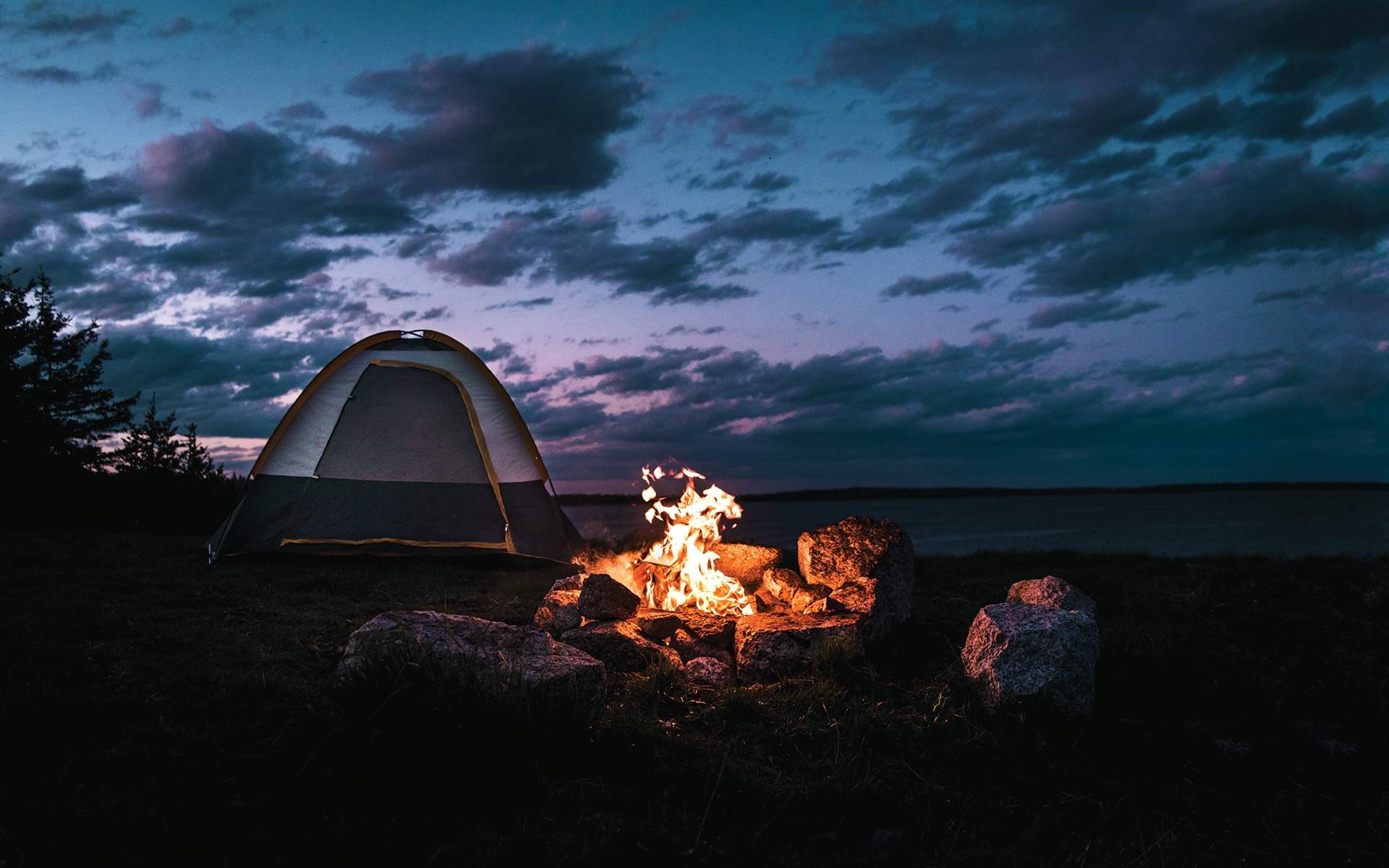Nature scares me. Terrifies me even.
So why did I find myself camping out beside the Atlantic Ocean one night last fall? The Cape Breton Highlands National Park in Nova Scotia is a landscape where steep cliffs drop off to a roiling ocean and moose and bears roam free. It’s the kind of place where my normal free-floating anxiety finds plenty of reasons to expand into full-blown panic.
On this particular night, the ocean waves sound like thunder as I set up camp with my husband, Jesse, and our friend Ben right before dark. It’s turning cold, so we’re among only a handful of other campers. The raging wind lifts the fly from our tents as we set up, compelling us to use extra ropes and pegs. Then we make our way to the beach for a midnight drink.
By now, it’s pitch black. To see an arm’s length in front of you requires turning your headlamp on full blast. The ocean sounds like a freight train in front of me, but my ear catches another sound. What was that? I whip my head back toward land, tracing its source to a split between two tall crags. I imagine what might materialize. The light plays off the towering rocks in such a way that the next surge of waves startles me. I’m spooked, and needle my way between Jesse and Ben’s shoulders.
“If it was bears, we’d hear them,” Ben reassures me.
That night, I lie awake as the wind drums on the fly. Even ear plugs can’t drown out the sound. Tapping into my childhood fear of Creature from the Black Lagoon, I imagine something pawing at the tent. I am reminded that no matter how long I’ve lived in Nova Scotia, I will probably always be what the locals call “From Away.”
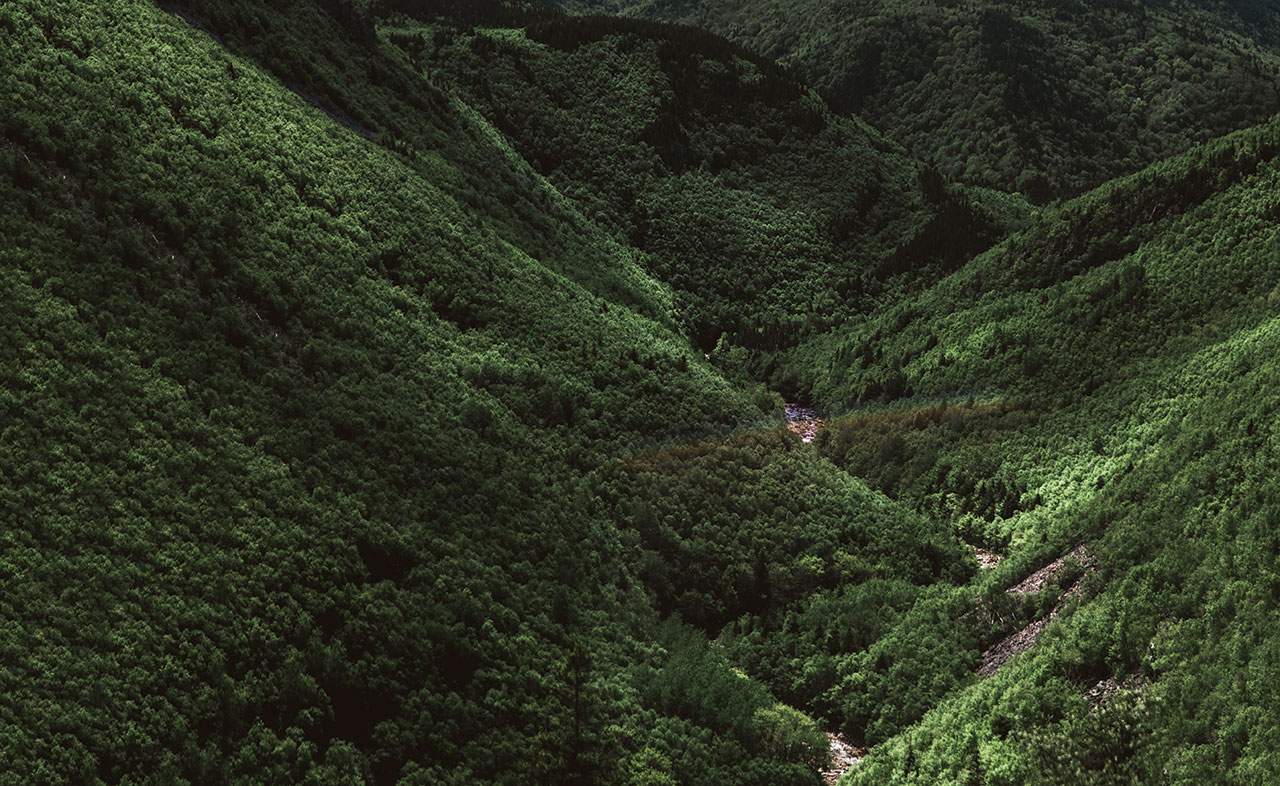
When I grew up in the matchbox suburbs of Southern Ontario, my idea of camping was heading to a local lake in my family’s sedan to claim a spot on a tightly packed grid of camping sites during the peak of summer. Tanned dads sat on lawn chairs overlooking the lake’s briney brown water, drinking lite beers and cranking battery-free radios. We’d bring coins to operate the showers.
So when I started camping with my husband, Jesse, who grew up on a Canadian farm, I was in for a surprise. For starters, I traded a four-door for a 4×4, the heavy-duty vehicle needed to handle the rutted roads that take us to some of the remote destinations that Jesse has helped me learn to appreciate. Our group holds on to the cooler below and the canoe overhead, and as we bounce along, my anxiety mounts. My companions’ idea of camping favors isolated spots, off-trail hikes, narrow ledges along rocky coastlines. I’ve slept in torrential downpours and learned to build a shelter out of tarps, collect rainwater, and lean in to the challenge of making a fire. I’ve slept wrapped up like a burrito in a tarp in a hole dug into the snow. With each different trip, I encounter anew the realization that my brain seems hard-wired to experience nature tinged with fear. Camping with them is to sign on for discomfort both physical and mental. It is to endure self-imposed pain, boredom, fear—not to mention bats emerging from trees if you mistakenly think you’ve found a private place to pee.
But I’ve grown to love it. There’s a mental terrain to camping, to being outdoors, that makes me feel more vulnerable…but also more alive. I notice more. When I get into a kayak and needle my way around the edges of a lake, or spy a family of ducks in a meadow, or see beaver dams as wooden slabbed palaces built into shoreline, I get the sense that things have been like this long before I got here.
You probably won’t be surprised to learn that the number of per capita visits to national parks began declining around the time email was invented, leading some camping enthusiasts to despair. A 2008 article in Scientific American predicted that it would take “80 million more visits this year to get the per capita number back up to the level it was in 1987.” But fast-forward to 2018, and national parks are in such demand that they’re trying to manage the crowds with online reservation systems. This year, Alberta Parks Canada had 1,600 reservations in the first 24 hours, a record since the system was put into place nine years ago. Between 2015 and 2016, a full 16% of Americans went camping.
Based on my own conversion story, I offer one possible explanation for why camping may be regaining popularity, especially in our gadget-driven technological age: It offers one of the most reliable ways for us to experience awe. When we’re presented with something vast, like the ocean or a mountain, or something containing a great multitude, like the stars of the night sky, it transcends our understanding. The unease I feel when taking in the boundless spaciousness of the ocean, or even my fear when I imagine some creature lurking behind me on that dark beach—such moments remind me of what Immanuel Kant called “negative pleasure,” a term he attributed to experiences of the sublime. We feel small and slightly disturbed—a dread inspired by encountering something we can’t fathom. Yet Kant says we can take pleasure in this feeling when we realize the sublime poses no present threat to us. The pleasure of relief that arises when we stop feeling uneasy before the sublime results in a state of joy. That’s awe.

Of course we feel awe when viewing something vast like the Grand Canyon or beholding the Milky Way in the night sky—and camping offers access aplenty to those kinds of experiences. But evolutionary psychologist Dacher Keltner says it’s also possible to encounter awe in the more mundane observations of daily life. It’s possible to find awe in the small, even boring, rituals of camping—scouring the ground to choose your site, noticing the wind as you set up your tent, watching the flames of a fire as you cook your meal, washing up in a babbling brook. Everything once taken for granted requires attention. I love seeing my breath on a cold fall morning. Or watching the sun melt the frost on the grass. Once the tent is up, there’s cinnamon corn whiskey.
The benefits of cultivating awe are profound, says Keltner. In studies at his lab at the University of Berkeley, researchers have found that people who have just momentarily experienced awe—by gazing at tall trees or watching expansive images of Earth—tend to be more curious, altruistic, and cooperative. He speculates that seeking out experiences of awe may have allowed early humans to make the shift toward living in social collectives. Awe, Keltner points out, creates a virtuous circle: Awe makes us kinder, and acts of kindness inspire awe.
So on the camping trip to Cape Breton, I try to cultivate awe, not terror. Jesse, Ben, and I are hiking the Skyline Trail that hugs the dramatic coastline, and the weather’s turned bad. A sign before the first lookout point warns visitors to turn back during high winds. Waves of miserable people trundle by us in the opposite direction, clad in soaking wet shirts and garbage bags. A woman laughs hysterically when a strong gust billows her coat out like a sail. I look down at the cars and trees below—now the size of toys—then out at the vast ocean and feel a strong sense of vertigo.
It’s there, the familiar anxiety, but there’s something else too. Courage that I can do this. Maybe I can feel both things at once. I push forward on the wooden steps built into the steep cliff. The wind kicks up and more hikers turn back with concerned looks on their faces, but others keep going, and we follow. At one point I let out a maniacal scream-laugh and Ben locks elbows with me as we forge ahead.
It’s a sign of how far I’ve come that I actually go off the marked trail, awkwardly straddling an ancient, rotted log that will lead me to the base of a small gorge. I shimmy on. I begin to trust that a tree trunk can be both rotted and sturdy at once. My comrades are waiting for me at the top. I’m almost there.
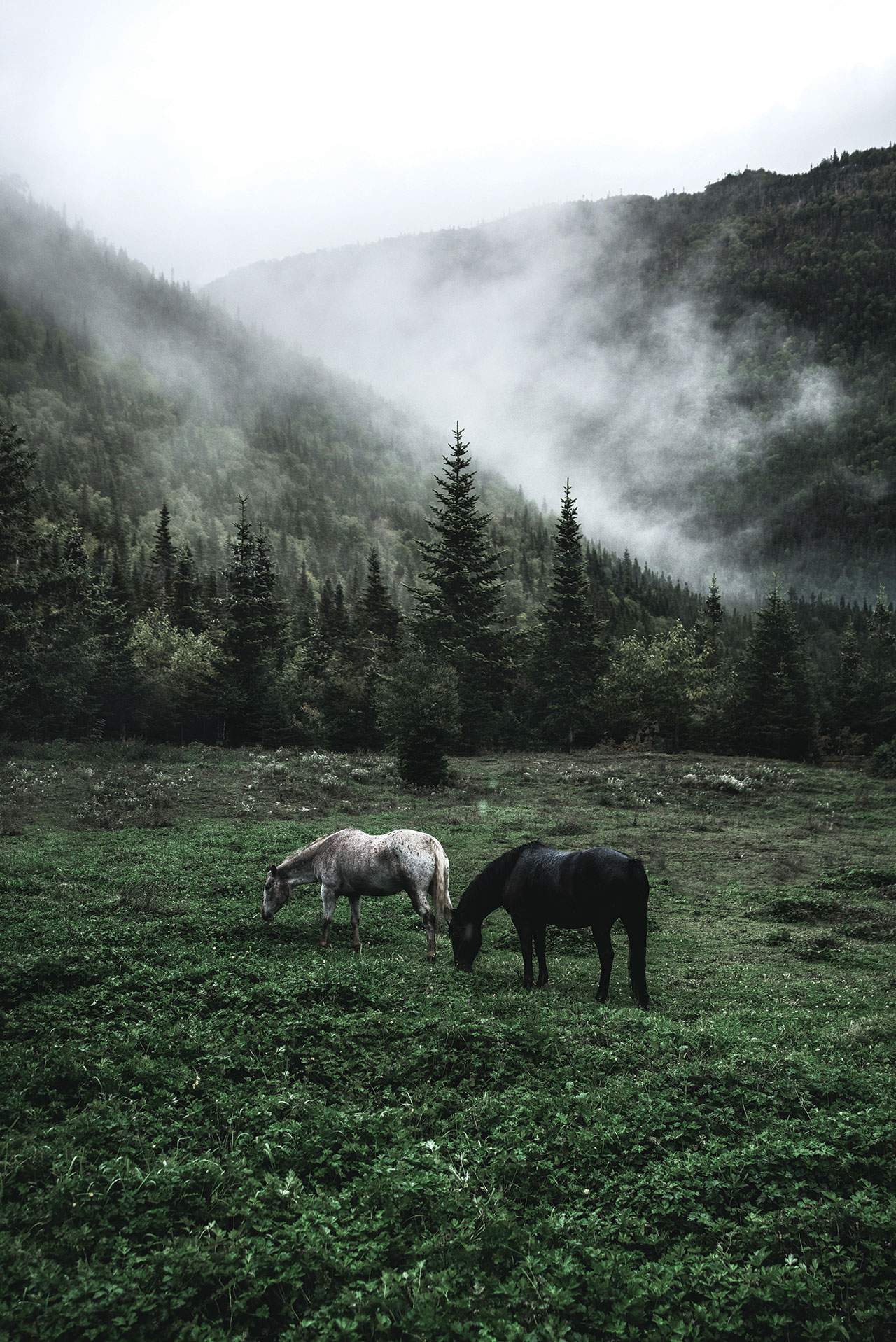
Awestruck
When nature momentarily pulls us out of our own heads, writes Dacher Keltner, we can find greater meaning and joy.
We are all naturally endowed with a set of passions that enable us to find our purpose, increase our well-being, and navigate our place in the social world. These passions include gratitude, compassion, mirth, and awe.
Awe means being in the presence of things greater than our individual selves, that take us beyond the ideology of self-interest. It is the experience we have when we encounter things that are vast and large and that transcend our current understanding of the world. The Greek philosopher Protagoras believed that our capacity for awe is our defining strength, the engine of creativity, discovery, purpose, and health. And the science could not agree more: Brief experiences of awe, such as in standing amidst tall trees, lead people to be more altruistic, less entitled, more humble and aware of the strengths of others, and less stressed by the challenges of daily living. These brief experiences give people a better sense of how they are part of larger social collectives, they stir scientific thought, and are good for the immune system.
I’ve battled anxiety throughout my life and my older daughter has too. It keeps you away from the things you love. My daughter and I consistently find peace through awe. We backpack, and suddenly nature runs through our nervous system and makes us happier and healthier. Our immune systems work better.
At the Greater Good Science Center we partnered with Mindful to do a guided awe walk, and we’ve been partnering with the Sierra Club and Outward Bound to get people outdoors to experience awe—veterans, inner-city kids, nursing home patients, whoever needs it. It’s such a simple gift, something everyone already has that allows them to find peace and meaning.
When you’re in awe, it takes less energy to be alive. Normally, we’re all so attuned to trying to figure out where we need to be to try to make something happen.
Awe short-circuits that.
You can just be where you are.
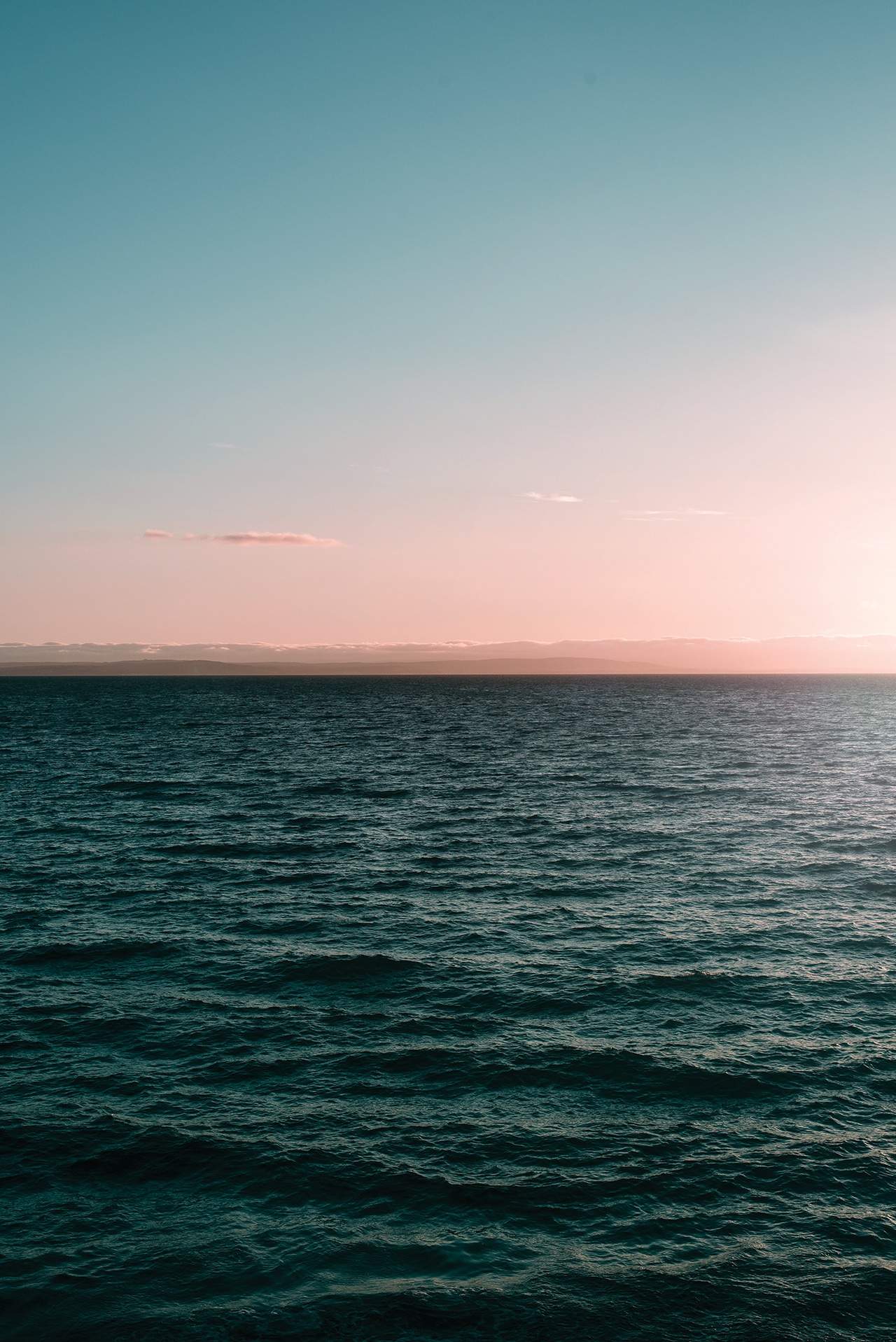
Beyond Your Comfort Zone
Being out in the elements can make your body and your mind squirm. That’s part of the reason to do it. It can help you stretch your resilience.
Safety First
Most of the time, you’re not in real danger, just uncomfortable, but it’s good to be as sure as you can about that. Rashes, blisters, serious bites, infections, concussions, dehydration, even hypothermia—these and more have happened to campers. Be prepared to use first aid and, if necessary, respond to a medical emergency.
Follow Your Sensations
Irritability and discomfort often come as a big, jumbled mess of emotions. Take a moment to just be with your feelings. Where are the actual sensations coming from? Ask: What is happening now? Repeat, What is happening now?
Breathe Deeply
Asking what’s happening now can ground you in the present and separate your fears and agitation from actual sensation. Breathe deeply and let any excess tension surrounding your pain release. It may not be as bad as you think.
Accept
If the sensations keep annoying you, keep asking what’s happening now, to keep bringing you into the present. If the discomfort is not related to an organic source—poison ivy, wet socks—you may find you’re just tired of not being entertained at the level you’re used to back in “civilization.” You’ve struck it rich. Accept where you are, and you may start to get to the beauty of the moment you find yourself in, not the one you keep wishing for.
Laugh
We try so hard to be where we’re not. When you see that up close, it’s hilarious. Have a big laugh and be awestruck by your surroundings. This is why you went camping in the first place. You went away to come home.
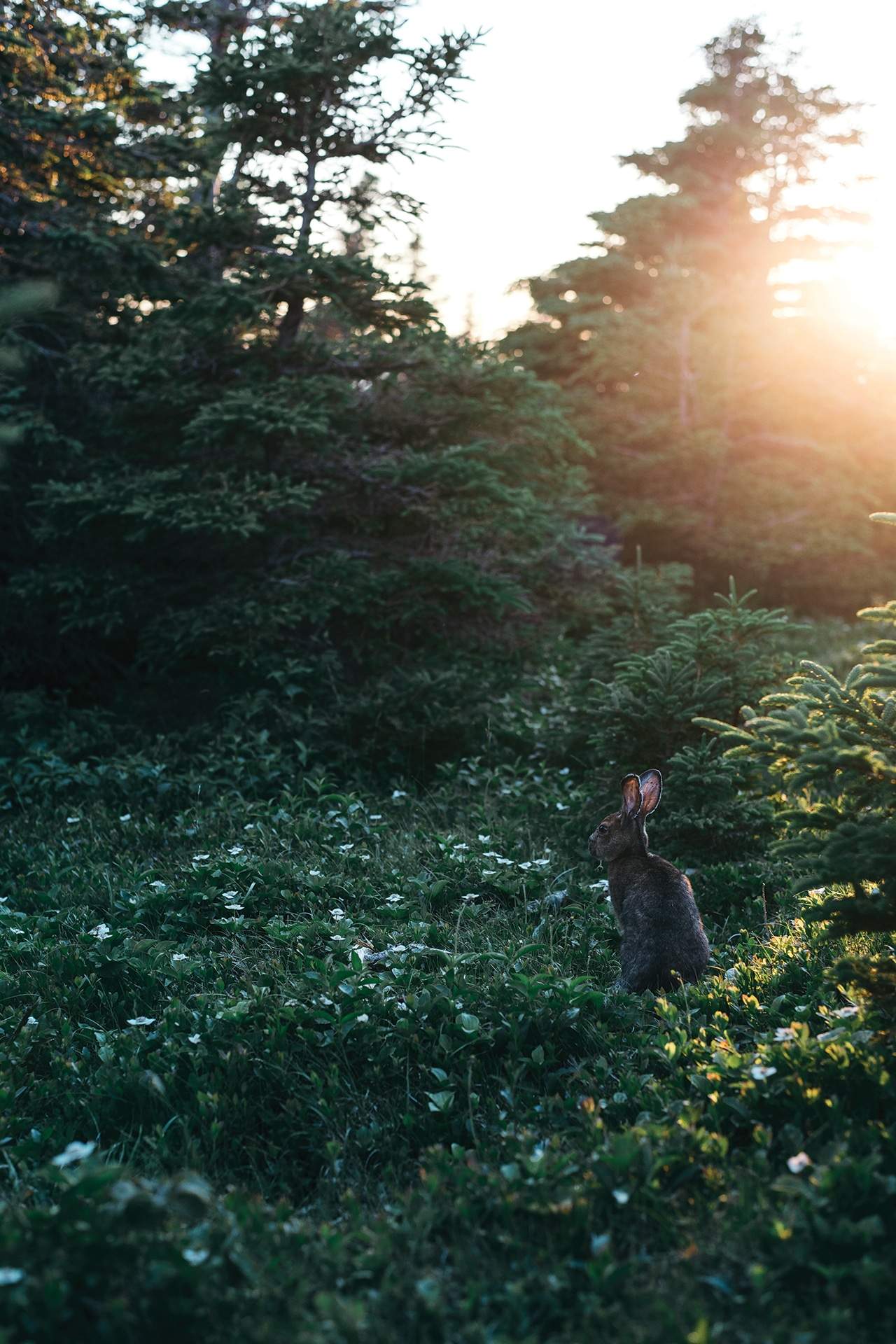
One Step at a Time
Henry David Thoreau—who famously “went to the woods” to find himself and to find company in nature—wrote a long essay called “Walking,” where he celebrated “sauntering” as a noble art. He was walking like “a meandering river,” not driven by purpose but rather by the sheer joy of letting mind mix with nature—away from the noise that society (and nowadays our devices) can impose on us. He wasn’t celebrating walking simply as a form of exercise, but as a way to raise your gaze above the constraints that daily life can put on you. While formal walking meditation practice emphasizes close attention to the movement of your body and your feet on the ground, this walking-in-the-wild practice asks you to join the vastness above and all around with the earth beneath your feet—allowing you to recall how refreshing it can be to rest your gaze on something farther away than a computer screen or the car in front of you in traffic.
When you begin walking, take it very, very slowly, with your eyes closed and chin tucked down. Allow the sensations of your feet on the ground to guide you. A walking stick is a fine accompaniment. You can do this on a path or in an open meadow. Just be careful to go slow enough not to stumble on something.
Open your eyes and lift your head to a level gaze. Start to take in the surroundings—close to you, between ground level and eye level, and just ahead. Stride out confidently at a slightly accelerated pace. Stop if you need to appreciate something in detail.
Raise your gaze above eye level and look out to the horizon. Notice how much bigger your peripheral vision has become now that you’re looking up and out. Walk at whatever pace—fast or slow or moderate—your heart desires.
Find a spot with a clear view of the sky. Stop, lie down, and look at the sky. If it’s evening, revel in the gathering stars. Take in the vastness that you are part of. When the awe becomes too much for you, come back to earth and resume your walk.


